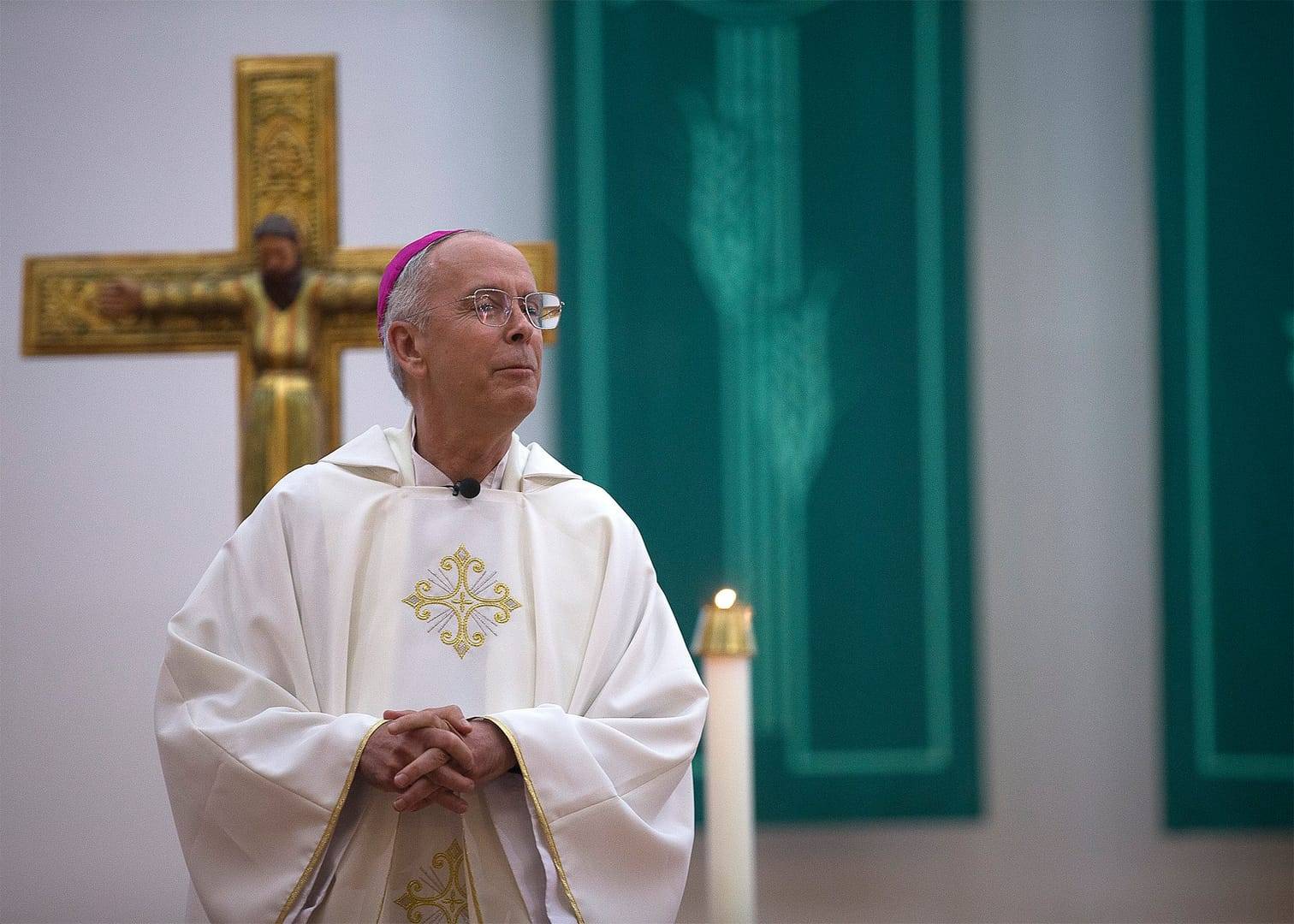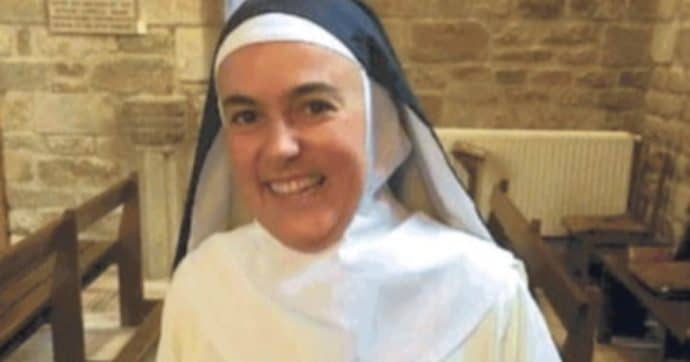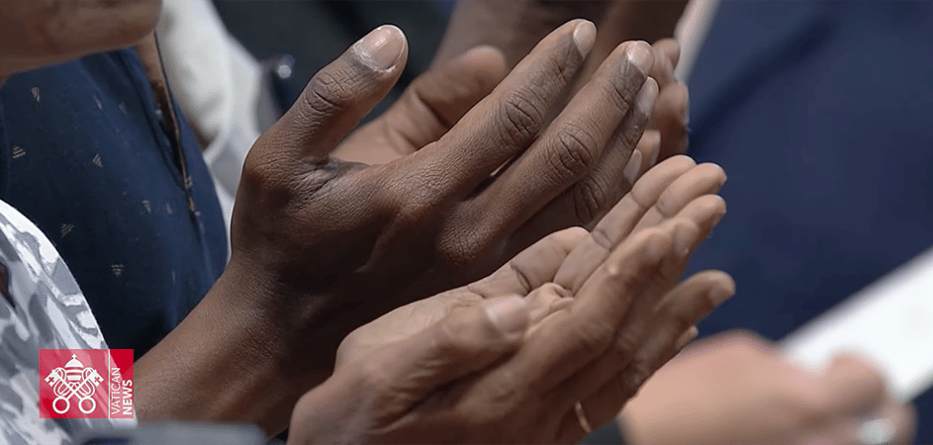COLOMBO, Sri Lanka — Pope Francis today gave Sri Lanka its very first saint, canonizing a 17th- and 18th-century missionary named Joseph Vaz who helped keep Catholicism alive on the island nation during a time of severe persecution.
Vaz was beatified exactly 20 years ago by Pope St. John Paul II during his own trip to Sri Lanka, and Francis was obviously determined to bring things to conclusion, setting aside the normal requirement of a second miracle to declare Vaz a saint.
Before a festive crowd of at least 500,000 in downtown Colombo, many of whom had camped out overnight to await the pontiff, Francis called Vaz “a powerful sign of God’s goodness and love for the people of Sri Lanka.”
Bells rang out at the moment the pope made the formal declaration of sainthood, and Sri Lankans in native dress presented him with flowers in gratitude.
Known as the “Apostle of Sri Lanka,” Vaz was born in Goa, India, into a Portuguese family. As a young priest, he heard stories of the persecution that Catholics on the nearby island of Ceylon, today’s Sri Lanka, were suffering during a period of occupation by Dutch Calvinists.
Fearing that the Portuguese might try to win back their former colony under the guise of protecting the Church, the Dutch had launched a fierce campaign to wipe out every trace of the faith. They expelled all priests from Sri Lanka under pain of death, shuttered churches, and sometimes killed laity who tried to resist.
Vaz made his way to Sri Lanka in the guise of a beggar, often ministering in secret and at night. When he arrived in the jungle Kingdom of Kandy, then under a Buddhist king named Vimaladharma Surya II, he was arrested, but his service to the sick and dying during a smallpox epidemic won him greater freedom of action.
Vaz also boosted his stock by praying for an end to a drought, after which rain came and the king was convinced.
According to local historians, Vaz converted 30,000 locals in Ceylon and rebuilt a corps of priests, essentially rescuing the Catholic presence.
In some ways, Vaz is an icon of Catholicism all across Asia — sometimes forged in persecution, focused in a particular way on service to the poor, and trying to strike the right balance between spreading the faith while showing respect to the great religious traditions already there.
On Wednesday, Francis praised Sri Lanka’s first saint for three qualities.
- First, the pontiff said, Vaz was “an exemplary priest,” one who went “out to the peripheries” to search out the people who needed him most.
- Second, Vaz illustrated “the importance of transcending religious divisions in the service of peace.”
- Third, Francis called Vaz a role model of “missionary zeal.”
On that score, Francis delivered another impassioned appeal for religious freedom, calling it “a fundamental human right.”
“Each individual must be free, alone or in association with others, to seek the truth and to openly express his or her religious conviction, free from intimidation and external compulsion,” the pope said.
“Saint Joseph knew how to offer the truth and beauty of the Gospel in a multi-religious context, with respect, dedication, perseverance, and humility,” Francis said.
“This is also the way for the followers of Jesus today,” he said.
“We are called to go forth with the same zeal, the same courage of Saint Joseph, but also with his sensitivity, his reverence for others,” he said, calling on Catholics to be “missionary disciples.”
Inspired by Vaz, Francis called on Catholics in Sri Lanka to work for “peace, justice, and reconciliation,” saying it’s what the country wants and what the Church needs.
In remarks to the pontiff during the Mass, Cardinal Malcolm Ranjith of Colombo called on the new saint “to intercede for us in heaven so that Sri Lanka may be able to achieve the miracle of peace soon,” conceding that “we are still far away from reaching that goal.”
Later on Wednesday, Francis is scheduled to travel by helicopter to the northern city of Madhu to visit a famed Marian shrine.
The site was a combat zone during Sri Lanka’s 30-year civil war that ended in 2009, and the pope’s visit is seen by locals as a call on the government to accelerate efforts at development and reconciliation with the country’s Tamil minority, which is concentrated in the north.
On Thursday, Francis flies to Manila, opening a three-day stay in the largest Catholic country in Asia and the third-largest in the world after Brazil and Mexico.

















